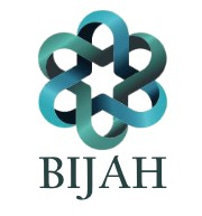Confirmation Bias: Navigating the Traps of Cognitive Bias
Confirmation bias shapes our perceptions and beliefs. Explore effective strategies to overcome this cognitive tendency and foster open-mindedness and critical thinking
INSPIRATION
Ariana Hitch
4/8/20242 min read
In the realm of human cognition, there exists a fascinating phenomenon known as confirmation bias—a cognitive bias that influences our perceptions, decisions, and beliefs in subtle yet profound ways. As we journey through life, it's imperative to understand this phenomenon, as it holds the potential to shape our worldview and impact the choices we make.
Confirmation bias, at its core, refers to our tendency to seek out, interpret, and remember information in a way that confirms our preexisting beliefs or hypotheses while disregarding or downplaying contradictory evidence. In other words, we have a natural inclination to favor information that aligns with what we already believe, reinforcing our existing beliefs and potentially leading us astray from objective truth.
This bias manifests itself in various aspects of our lives, from the way we consume news and media to how we form opinions about others and make decisions. Consider, for instance, the echo chambers of social media, where algorithms tailor our feeds to show content that aligns with our interests and beliefs. As a result, we're constantly exposed to viewpoints that reinforce our own, perpetuating a cycle of confirmation bias.
Furthermore, confirmation bias can subtly influence our interpersonal relationships, leading us to interpret ambiguous behaviors in a way that confirms our existing judgments about others. This can create unnecessary conflicts and misunderstandings, as we fail to consider alternative perspectives or give others the benefit of the doubt.
Acknowledging the presence of confirmation bias is the first step toward mitigating its effects. By cultivating self-awareness and adopting a critical mindset, we can learn to recognize when our biases are at play and take steps to counteract them. This might involve actively seeking out diverse perspectives, challenging our assumptions, and being open to revising our beliefs in light of new evidence.
Moreover, fostering a culture of intellectual humility and curiosity can help inoculate us against the insidious influence of confirmation bias. By embracing uncertainty and remaining open to the possibility of being wrong, we create space for growth and learning, transcending the limitations imposed by our cognitive biases.
In conclusion, confirmation bias is a pervasive aspect of human cognition that warrants careful consideration in our daily lives. By understanding its mechanisms and taking proactive steps to mitigate its effects, we can strive to approach the world with greater objectivity, empathy, and intellectual integrity. Let us embark on this journey of self-discovery and critical inquiry, embracing the complexities of the human mind as we navigate the labyrinth of cognitive bias.
Contacts
hello@bijah.uno
021 068 6094
